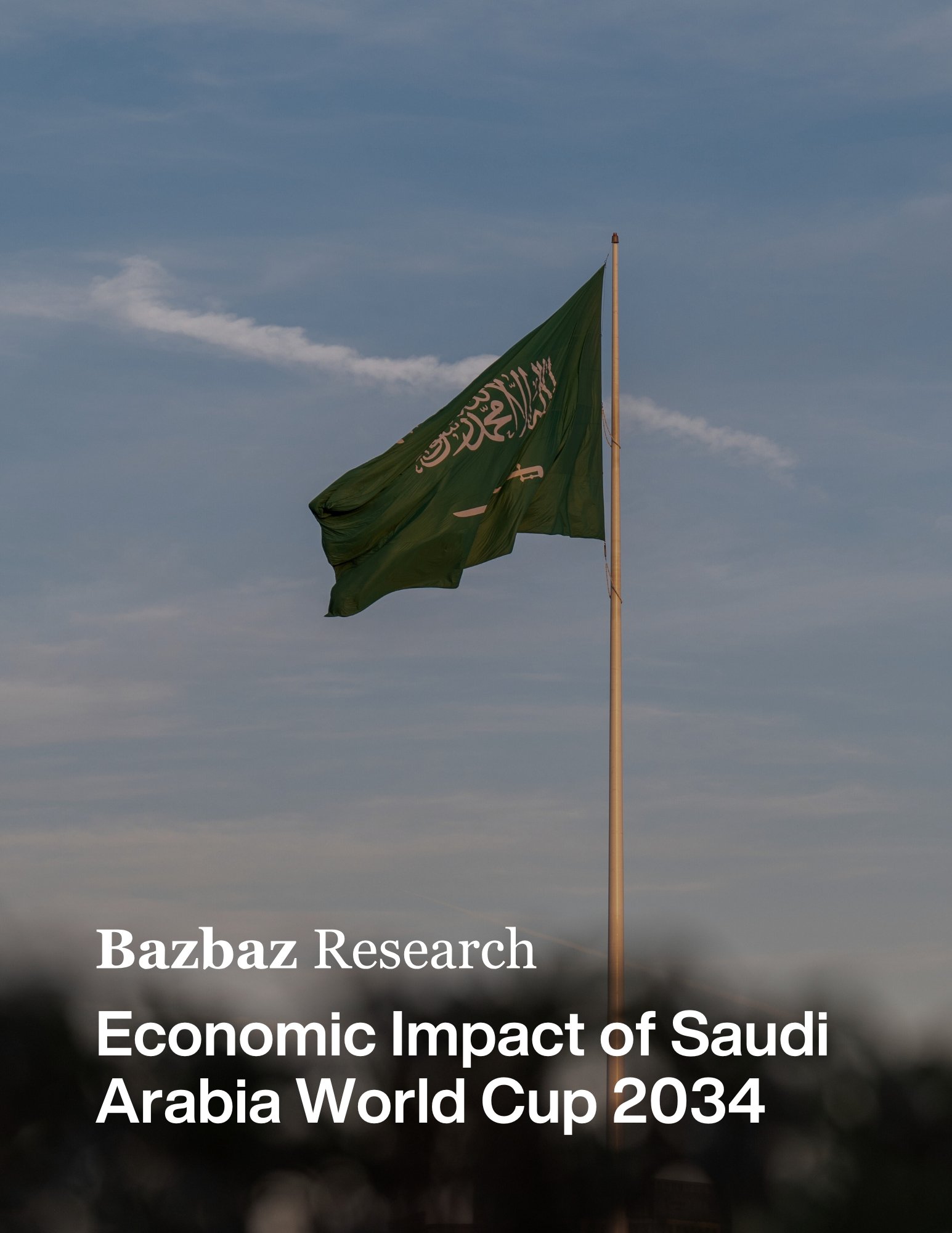Economic Impact of Saudi Arabia World Cup 2034
Economic Impact of Saudi Arabia World Cup 2034
Sultan Alsanad
Saudi Arabia is poised to host the FIFA World Cup in 2034 with an ambitious vision that prioritizes financial prudence, sustainability, and global impact. This monumental event aims to deliver a transformative experience not only for football fans but also for the Kingdom’s economy, infrastructure, and global standing.
A Financially Streamlined Approach
The FIFA evaluation report highlights Saudi Arabia's commitment to hosting a financially streamlined World Cup. By leveraging existing infrastructure and optimizing costs in key areas such as broadcasting, workforce management, and logistics, the Kingdom plans to execute an event that maximizes returns while minimizing expenses. Cost-effectiveness does not imply compromising quality. Instead, the Kingdom intends to set a benchmark in delivering a world-class tournament that resonates with fans.
Projected revenues are anticipated to soar, with ticket sales, hospitality packages, sponsorship deals, and licensing arrangements forming significant revenue streams. The favorable time zone of Saudi Arabia, which aligns with major global markets, is expected to amplify television viewership and advertising revenues. This approach underscores a vision where financial viability meets global appeal.
Economic Impact and Job Creation
Hosting the 2034 FIFA World Cup is expected to inject up to $14 billion into Saudi Arabia’s GDP. This substantial economic boost aligns with the goals of Vision 2030, the Kingdom’s comprehensive strategy for economic diversification. Beyond the immediate financial gains, the event promises to catalyze long-term growth in tourism, infrastructure development, and foreign investment.
Job creation is a cornerstone of this initiative. The World Cup is expected to generate 1.5 million job opportunities across various sectors, including construction, hospitality, event management, and transportation. Such widespread employment opportunities will not only address domestic labor market needs but also foster skill development among the workforce.
Infrastructure Development
One of the standout features of Saudi Arabia’s bid is its infrastructure strategy. With plans to construct 230,000 hotel rooms by 2030, the Kingdom is preparing to accommodate an influx of visitors during the tournament. This massive expansion in hospitality capacity will enhance Saudi Arabia’s ability to host large-scale international events in the future.
In addition to hotels, the Kingdom is investing in state-of-the-art stadiums, training facilities, and transportation networks. These developments aim to ensure seamless experiences for players, fans, and officials. The integration of advanced technology in stadium design and operations will further elevate the World Cup experience, setting new standards for future tournaments.
Sustainability at the Core
Saudi Arabia’s World Cup plans emphasize sustainability, reflecting the Kingdom’s commitment to environmental stewardship. Renewable energy will play a central role in powering the tournament venues, aligning with global efforts to combat climate change. The use of green-certified facilities and eco-friendly practices will minimize the event’s carbon footprint.
Moreover, the World Cup will serve as a platform to showcase Saudi Arabia’s advancements in renewable energy and sustainable practices. By integrating sustainability into every aspect of the event, the Kingdom aims to inspire other nations to prioritize environmental considerations in large-scale projects.
Cultural and Global Impact
Saudi Arabia’s hosting of the World Cup presents a unique opportunity to highlight its rich cultural heritage and modern transformation. The event will be a melting pot of cultures, bringing together fans from diverse backgrounds to celebrate the beautiful game. This cultural exchange aligns with Saudi Arabia’s broader goal of fostering international understanding and cooperation.
The tournament is also an opportunity to challenge stereotypes and misconceptions about the Kingdom. By showcasing its hospitality, organizational prowess, and commitment to excellence, Saudi Arabia aims to solidify its position as a global leader in hosting prestigious events.
FIFA’s Endorsement and Expectations
FIFA’s evaluation report underscores Saudi Arabia’s suitability to host the 2034 World Cup. The Kingdom’s competitive pricing and potential for high viewership make it a compelling choice. Additionally, FIFA acknowledges the Kingdom’s dedication to creating a financially and environmentally sustainable tournament.
The endorsement by FIFA reflects confidence in Saudi Arabia’s ability to deliver an unforgettable World Cup experience. This confidence is rooted in the Kingdom’s track record of hosting successful international events and its ambitious vision for the future.
Challenges and Opportunities
Hosting an event as significant as the FIFA World Cup brings forth a complex blend of challenges and opportunities. Saudi Arabia faces the task of managing an unprecedented influx of visitors, ensuring robust security measures, and meeting ambitious sustainability targets. These logistical and environmental hurdles demand careful planning, innovative problem-solving, and effective collaboration with international stakeholders.
However, these challenges also offer an unparalleled opportunity to showcase the Kingdom’s capabilities on the global stage. By leveraging its expertise in organizing major events such as the Formula 1 Saudi Arabian Grand Prix and Diriyah E-Prix, Saudi Arabia can set a new standard for excellence in hosting. This experience allows the Kingdom to implement state-of-the-art technology, enhance its infrastructure, and further establish itself as a premier destination for global events.
Additionally, the World Cup presents an avenue to foster stronger international partnerships. Through collaboration with global experts in fields like security, technology, and sustainability, Saudi Arabia can adopt best practices and leave a lasting impression on participants and visitors. The tournament’s legacy has the potential to extend beyond the event itself, bolstering the nation’s tourism, economic diversification, and cultural exchange efforts for years to come.
The plans are ambitious, but hosting a tournament of this magnitude comes with challenges. Managing the influx of millions of visitors, ensuring security, and meeting sustainability targets will require meticulous planning and execution. However, these challenges also present opportunities for innovation and collaboration.
Saudi Arabia can leverage its experience in hosting large-scale events, such as the Formula 1 Saudi Arabian Grand Prix and the Diriyah E-Prix, to navigate these challenges. Collaboration with international experts and organizations will further enhance the Kingdom’s capacity to deliver a successful tournament.

